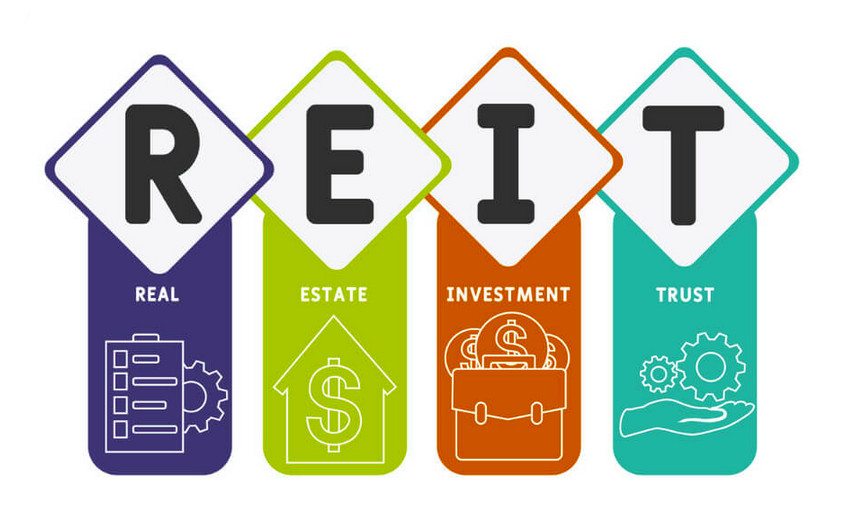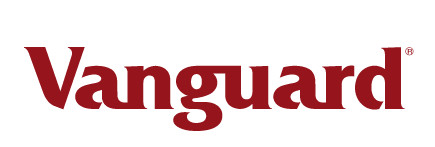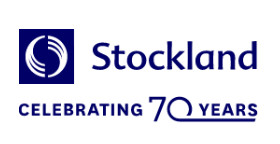Disclosure: Privacy Australia is community-supported. We may earn a commission when you buy a VPN through one of our links. Learn more.
Best Australian REITs to Watch in 2024
In 2008, real estate markets around the world plunged the rest of the economy into the “Great Recession”. Everything from the New York Stock Exchange to the Australian Securities Exchange fell in value. Businesses closed their doors. People lost jobs that they would never recover.

And yet, real estate still remained valuable. Its price went down, sure, but what a lot of people do not understand is that the value of an asset is not always the same as its price. An asset can easily be worthless, but still get traded at a high price because people perceive it to have worth.
As of today, we are on the edge of another global recession. The price tags of tons of REITs are all ready to fall. But the underlying value of those investments is still sound. That means you should be on the lookout for what REITs to buy. But what is the difference between value and price? And what’s a REIT?
We’ll go one at a time and explain these terms.
Table of Contents:
Value vs. Price 💰️
Imagine that you find a really pretty rock on the ground. You pick up the rock and take it home. Eventually, you decide to sell the rock. You attach a price tag to it of $400, just to see who is willing to pay for such a thing. The rock doesn’t do anything besides look pretty. It creates no economic value.
What is Value?
“Value” can be taken to mean many things, but in the capitalistic sense it means “The ability to do something that makes money”. A shovel has value because it can help you dig a hole. An MRI has value because it can help you detect cancer. It does not matter what the economy is like, as long as there are people, there will be interest in these things being represented within the economy.
It is important to note this, as many people will get hung up on things like aesthetic value and sentimental value. In the economy, these things do not always have worth. Think of it in terms of “What would you want to have on a deserted island?” A pretty rock might not make the cut.
A furnished house, however, would do a lot for you.
What is Price?
But if we go back to that $400 rock for a moment, let’s ask a question: What if someone actually buys it? In fact, what if someone shows interest in it, but you tell them that there are several buyers interested in the rock. They fear missing out on the rock and pay $500 for it to cut the line of customers.
“Price” is simple: It is the cost incurred by an asset, determined mostly by what people will pay for it, and partly by the asset’s underlying value. Interestingly, this means that while value can easily become subjective when considered in terms of aesthetics and sentiment, price is actually equally subjective.
What is a REIT? 🏡️
Our last definition for today is a simple matter of real estate business. “REIT” is an acronym for “Real Estate Investment Trust”. These are funds that you can buy into (sometimes even on the Australian Securities Exchange) that are invested on your behalf into real estate investments.
Imagine it like this: There will be a stock on the ASX. That stock will have a price like any other stock. But rather than the price of that stock being determined by the value of a company that does business, it will be one more step removed from reality. The price of the stock will be determined by the value of the investments made by the fund’s holder into various real estate development projects.
It means that you don’t have to make the investments yourself. You just have to find a fund that you, for lack of a better word, feel like you can trust. So, what are the 10 largest REITs in Australia?
1. Vanguard (VAP) – Best Overall Australian REIT
You may have heard of Vanguard due to the fact that they are one of the biggest real estate companies in the world. They are a company made up of some of the richest people in the world, and most of their business operations simply boil down to “Buy land and hold it, making money off of owning it.”

They own land in the United States, Australia, Japan, many countries in Europe, and beyond. For them, no price point is too high for any given real estate development or property. They are already richer than anyone else, so they know they can outbid anyone. This ensures that their investments are diverse.
Drawbacks 👎️
At the same time, Vanguard has never really needed to be careful with its money. Because the company is made up of the richest people in the world, they tend to pay far more than they need to for any given property. This leaves the REIT on the far more expensive side of things.
It also means that the large amount of exposure in the REIT leaves it vulnerable to a recession.
Pros
- One of the largest companies on Earth, making it reliable
- Can be assured to provide value most of the time
- High return on investment
Cons
- Highly exposed to the market, subject to recession as a result
2. Goodman Group (GMG) – Best Low-Cost REIT
While it is incorrect to call the Goodman Group’s REIT the “flip side of the coin” from Vanguard’s, they are certainly operated as differently as real estate trusts can be.
Vanguard is in a bidding war with the universe trying to become everyone’s landlord. The Goodman Group is hardly a mom-and-pop real estate company, but it certainly focuses on smaller developments at lower costs than Vanguard does.

This leads to the company having a huge market cap and a low individual share price, meaning it is easy to get invested in its REIT with heavy leverage. It also means that the exposure of the REIT is limited to Australia itself.
Drawbacks 👎️
Though being limited to Australia has its own drawbacks as well. Risk is managed, but so is reward, leading the REIT to have lower output than many of its competitors. You can invest heavily in it to see greater rewards, but even then, you should wait till after a recession has begun to do that.
If you invest heavily in it right this second, you run the risk of getting caught in the many plummets the market is seeing these days. That’s not as much of a problem with REITs that require lower exposure.
Pros
- Low cost
- Based in Australia
- Knows Australian business better
Cons
- Requires deeper investment to see rewards
3. State Street Global Advisors (DJRE) – Best REIT for International Property
If you have an interest or knowledge in international economics, property, or politics, then DJRE is the REIT for you. Based in the United States, it trades on the ASX through depository receipts, meaning that it is just as good as trading an REIT that is based locally. But there are a few implications there.

When an REIT is traded internationally like this, that means its price can shift during the market hours of those other nations. If you’re on the east coast of Australia, the New York Stock Exchange starts trading at around midnight. That means you can watch DJRE’s price fluctuate there before it opens in Australia.
It also means that catalyst events that impact Australian REITs will not impact DJRE, and vice versa.
Drawbacks 👎️
The issue with this kind of international trading is that there is a degree of powerlessness to watching another stock exchange make your REIT’s price go up or down. You can get an idea of what direction DJRE is going based on its performance in the United States, but you’d have to take special steps to impact it due to being an Australian citizen who cannot necessarily purchase American stocks.
Pros
- Gives access to international real estate
- Based in the United States, but easy to trade
- Can preview performance on the New York Stock Exchange
Cons
- Most people will not be able to respond to its NYSE performance until the next day
4. Scentre Group Ltd. (SCG) – Best Retail REIT
When you’re dealing with ultra-large-cap companies like Vanguard, it can be easy to treat all real estate as the same.
And it is true that many buildings, even if they are constructed with a purpose, can be knocked down and rebuilt, keeping them highly versatile. However, there are limits to that.

Most cities have districts that outline where certain buildings can be built. Retail real estate is one of the most versatile types of real estate, since it can so easily get clearance to build in a residential area.
SCG specializes in retail real estate. That means its market is fast-paced and responsive to change.
Drawbacks 👎️
It also means that you have to be ready to move at a fast pace and respond to change if you want to get the most out of SCG. Is this necessary in order to grow your money with it? Not exactly, but it does not grow as much as other REITs. If you want something that lets you make passive income, this is not the REIT to do that with. But you can make even more money if you have the time to manoeuvre it.
Pros
- Lots of optimizations you can make with it
- High resilient to economic issues
- Broad and safe investment
Cons
- Spikes up and down, but does not necessarily grow as much as other REITs
5. VanEck (MVA) – Best REIT for Advanced Investors
Most REITs are going to construct themselves after a niche. “Big real estate investments” or “retail” or “international”. Something like that. MVA certainly has a niche, which you can read all about. But rather than being a niche within the marketplace, it is a niche that they outline themselves.

MVA never has less than 10 holdings within its REIT, it never lets any of those holdings exceed 10% of the total REIT, and none of those holdings have a market cap of less than $150 million.
It also requires that the trading volume of those holdings stay above $1 million in value and 250,000 shares within a three-month period (a particularly hard hurdle to get over right now).
What do all these rules amount to? Simply put, an REIT that is transparent about which real estate holdings it invests into and why. That means if you find yourself disagreeing with what they are investing in, you can leave. It also means you can invest more if you like their plans.
Drawbacks 👎️
Like before, however, if there is a plurality of things you “can” do, you will usually only make enough money to justify getting into the REIT by choosing the right one. MVA is a REIT for someone who knows what they are doing. Only invest into it if you are willing and able to respond to how MVA invests.
Pros
- Only invests in the best
- Changes their investments to match their standards
- Never puts all their eggs into one basket
Cons
- Incredibly high maintenance to keep up with
6. Dexus (DXS) – Best REIT for Office Space
Let’s get one thing out of the way: Dexus does not only invest in office space. They also invest in industrial and healthcare real estate too. And that’s great! Healthcare and industrial real estate have seen some growth in the last two years. So, why is their office space focus so important?

Well, remember how we said that retail was one of the best types of real estate because it can go almost anywhere? Office space is even better at that. Apartment buildings get turned into office spaces all the time. This means that as long as bureaucracy keeps expanding, so will Dexus.
Drawbacks 👎️
However, office workers are some of the first to go during a recession. So, for all the freedom this type of real estate offers, and as high as their prices are, the underlying value is probably way off the price.
Pros
- Deals in a highly versatile niche
- Easy to understand
- Low maintenance, high returns
Cons
- The least recession-proof REIT
7. Mirvac Group (MGR) – Best REIT for Beginners
The three easiest types of real estate to get into are residential real estate, office space, and real estate development. Residential real estate’s value can be ascertained by a simple question: Would you live there? Office space, as we said before, will always be valuable, until it obviously isn’t. Real estate development is the industry of investing in the construction of various real estate projects.

These are the domains of Mirvac Group, one of the most intuitive REITs on the market due to their easy-to-understand niches and low cost of entry. They do not always invest perfectly, but you can always see what they are getting into and respond to it accordingly.
They also invest in low-cap projects, meaning that even if you do not respond correctly to one of their investments, they will not heavily leverage that mistake.
Drawbacks 👎️
Anything that is easy-to-use will tend to be low-risk, low-reward, and MGR is certainly no different. Low amounts of leverage into small-cap developments means that you will never lose that much money, nor will you gain that much money through being invested in MGR.
8. Charter Hall Group (CHC) – Best REIT for Social Infrastructure
Have you ever asked yourself: “Why does it take so long to fix the roads?” Well, Charter Hall Group knows the answer to that question: “Because we get paid by the hour, and the day, and the month.”
Social infrastructure has long been one of the safest pathways to solid money for many REITs. The government and real estate developers have an understanding.

First, the government offers a contract to a variety of developers. The person willing to do the most work for the least amount of money gets the contract. Once it is signed, the developer must then find a way to stretch the work out forever.
Well, not forever, obviously. But since the government can’t go back on its contracts in the same way a private business can, firms like Charter Hall Group that invest in such developments are basically guaranteed to get their money. This makes CHC an incredibly safe investment.
Drawbacks 👎️
At the same time that their social infrastructure development investments are strong, they make a lot of other investments that you might be cautious about. They operate at around half social infrastructure and half other things, so be ready for those other investments to cut into you every so often.
Pros
- Consistent money from the government
- Easy to get into and operate
- Sometimes hits a big payday in the private sector too
Cons
- Can also cut into gains due to private sector losses
9. Lendlease Group (LLC) – Best Urban Development REIT
Too many cities these days are made of concrete. If you have only ever lived in massive cities of dizzying urban sprawl and parking lots that go on forever, then that might sound a bit obvious.
But if you look to Europe or Southeast Asia, you will usually find cities that are shifting towards internal beauty over function. That is the kind of work that Lendlease Group specializes in.

Turning parking lots into parks, bridges into walkways, and adding sidewalks to otherwise unsafe roads are all the focus of LLC. And with the growing demand in just that, this REIT is set to grow in a big way.
Drawbacks 👎️
The problem with this might be obvious: The price of LLC is low right now because the value is partly speculative. It all depends on how certain you are that urban development will make a shift towards walkable cities and parks. Of course, even if they don’t, LLC will still get work.
They will just make much less money if cities don’t innovate on themselves in the coming years.
Pros
- Highly forward-looking
- Currently cheap to invest in
- Lots of upside potential
Cons
- A degree of downside potential as well
10. Stockland (SGP) – Best REIT for Small Businesses
Recessions are an interesting thing. Once the next big recession (inevitably) hits, dozens (if not hundreds) of small businesses will be destroyed by it.
Yet at the same time, there will be businesses that can only start because of it. One could argue Facebook was started in such an environment.

Stockland is a REIT that focuses on investing in the real estate development of smaller businesses. That means people who are getting their first storefront setup or opening a franchise for the first time will get loans from SGP, and you will pay into those loans through the REIT. As the loan is paid off by the business, the REIT will pay out. This makes the exposure of SGP incredibly diverse.
Drawbacks 👎️
But like with LLC, the viability of SGP is a matter of opinion for a lot of people. As of right now, it is probably not a good idea to invest in it. We are just too close to the edge of a recession.
Only once the recession hits and opening a business becomes cheap again can you reliably say that SGP’s business model is financially reliable.
Pros
- Great post-recession play
- Cheap and only getting cheaper
- Another forward-looking business model
Cons
- It’s going to get worse before it gets better
Conclusion ➡️

Due to the real value of real estate, it is hard to go wrong picking an REIT to invest in for the future. Many of the trusts on this list have been operating for decades, and while it is possible for such entities to still go out of business, the warning signs will be obvious if that is about to happen.
Just be sure that it is something that you can make the most of. Picking the right REIT is only half the battle. Navigating it, especially during the incoming financial turbulence, is the other half of it.
You Might Also Like:




